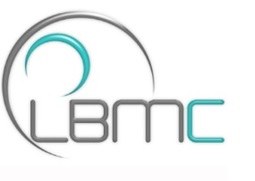Juillet 2023
|
Lundi 03/07/2023 Salle conf IBCP Séminaire Externe |
“ How do bacterial persisters survive antibiotic exposure during infection? ” | |
|
|
Séverin RONNEAU (University of Namur-Belgique)
Hôte : C. Grangeasse
|
|
|
Lundi 03/07/2023 Salle SDT CRC Séminaire Externe |
« Proximity Copy Pasting (PCP): A new method to map the 3D organization of chromatin » | |
|
|
Axel DELAMARRE Memorial Sloan Kettering Cancer Center, New York)
Hote : Aurèle Piazza
|
|
|
Mardi 04/07/2023 Amphi Pasteur Séminaire Externe |
« Exploration of the functional diversification of a modular Legionella T4SS effector family » | |
|
|
Dr. Gunnar N. SCHROEDER (Queen's University Belfast)
Hôte : Patricia Doublet
|
|
|
Mardi 04/07/2023 Amphi Pasteur Séminaire Externe |
"A tale of two effectors: strain specific nucleotropism in Legionella pneumophila proteins » | |
|
|
Dr. Irina SARAIVA FRANCO (Universidade NOVA de Lisboa)
Hôte : Patricia Doublet
|
|
|
Mercredi 05/07/2023 Amphi Pasteur Séminaire Externe |
« How the Immune System Shapes its Future ? » | |
|
|
Saïdi M’HOMA SOUDJA (Centre de recherche en cancerologie de Lyon)
Hôte : Thierry Walzer
The immune system employs various strategies to prepare itself for fighting future infections and tumors. One crucial aspect is vaccination, which protects by preparing the immune response for future encounters with a pathogen. We will present mechanisms that permit immune cells to mount rapid and robust reactions upon reinfection. Beside, naïve cells are not truly "naïve" per se. They have been pre-conditioned by different signals that have shaped their future responses and trajectory. As a result, naïve cells are not as candid and « naïve » as they appear on the surface. This preconditioning of naïve cells could also confer a degree of protection during future infection. We will discuss data that demonstrated that lymphocytes at the naïve stage can be preconditioned with consequences in preventing chronic intestinal inflammation. Finally, I will present some unpublished data suggesting that adaptive immune cells restrain microbiota-driven homeostatic type 1 immunity in innate cells during homeostasis. Ultimately, we believe that addressing mechanisms that shape our immune system during homeostasis will enhance our vaccine arsenal and improve the efficacy of immunotherapeutic interventions. As the famous adage states, "Prevention is better than cure," and understanding immune system preparation is a key step towards achieving this goal.
|
|
|
Jeudi 06/07/2023 Salle SDT CRC Séminaire Externe |
« Decoding the battle between Mycobacterium tuberculosis and host metal defenses » | |
|
|
Olivier NEYROLLES (Institut de Pharmacologie et de Biologie Structurale, Université de Toulouse CNRS, UPS, Toulouse, France)
Hôte : Thomas Henry
The design of new drugs to combat tuberculosis requires a better understanding of the mechanisms by which the tuberculosis bacillus, Mycobacterium tuberculosis, survives and grows within the cells and tissues of its host. Our laboratory is interested in deciphering the close links between the evolution, physiology and virulence of the TB bacillus. Here I will present our recent work, based on targeted and genome-wide approaches, aimed at deciphering the strategies used by M. tuberculosis to counter nutritional immunity, in particular host-mediated metal intoxication in the mycobacterial vacuole, a novel mechanism of innate immunity. In particular, we and others have discovered that, in addition to their well-known ability to limit the access of intracellular pathogens to essential elements such as iron, macrophages can accumulate transition metals, notably zinc and copper, in the phagocytosis vacuole, at concentrations potentially toxic to microorganisms. To resist this stress, we have identified metal efflux pumps of the P-ATPase superfamily in the tuberculosis bacillus, as well as a new type of small metallochaperone capable of binding metals and stabilizing the efflux pumps in dynamic membrane platforms whose exact structure remains to be elucidated. These results open perspectives for the development of new treatments and for the understanding of the metallobiology of host-pathogen interactions and bacteria in general.
|
|
|
Mardi 11/07/2023 Amphi I - site Monod ENS Séminaire Externe
|
A CDKN2C retroduplication in Bowhead whales is associated with the evolution of extremely long lifespans and alerted cell cycle dynamics |
|
|
|
Dr Juan (Manny) Vazquez (Sudmant Lab, Department of Integrative Biology UC Berkeley – CA, USA)
Host : Lucie ETIENNE
The Bowhead whale (Balaena mysticetus) is the longest-lived mammal, with an estimated maximum lifespan of 211 years. This incredible lifespan theoretical exposes an organism to an increased risk of cancer relative to shorter-lived ancestors due to the extended time they have to accumulate pro-cancerous mutations. Yet, Cetaceans overall have some of the lowest lifetime incidence rates of cancer, suggesting that they have evolved mechanisms to suppress their relative increase in cancer risk. Using comparative functional genomics, we show that the Bowhead whale possess a recently-formed retroduplication of the tumor suppressor gene CDKN2C that is highly expressed across tissues, and conserves the cell cycle regulatory function of the canonical gene. Together, our results suggest that this CDKN2C retroduplication may have played an important role in decoupling the evolution of longevity in Bowhead whales from an increased risk of cancer.
|
|
|
|
|
|
|
|
|
|





